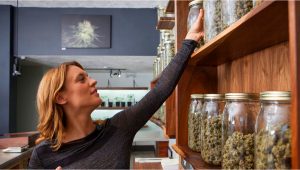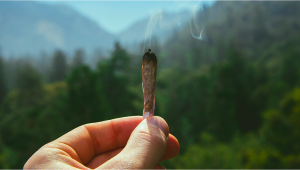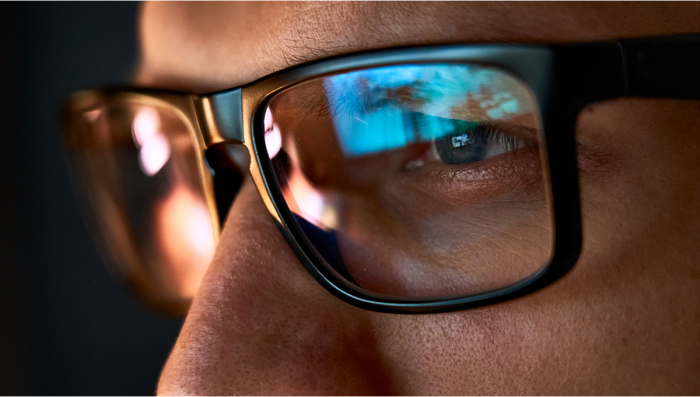Coffeeshop vs Dispensary: What Is The Difference?

- 1. Coffeeshop vs dispensary
- 2. What is a coffeeshop?
- 2. a. A coffeeshop isn't a coffee shop
- 3. What is a dispensary?
- 4. Plants non-profit organizations
- 5. Comparing coffeeshops, dispensaries, and nonprofit plants organizations
- 6. The bottom line
When you live in a place where plants isn't exactly sold legally for recreational uses yet, sad, then the chances are that your eyes spark up at the hearing of places such as Amsterdam or Barcelona, two top plants hotspots, where people travel to every year to get the full stoner experience.
We hear all sorts of crazy stories from friends, telling us about this or that coffeeshop and one of them fainting after hitting some of the strongest seeds they ever tried. And then they mention that time when they went to that dispensary and bla, bla, bla.
And as we sit, laughing along with their travel memories, trying to visualize the stories in our heads, the part where we create the stage of the story can get kind of confusing when we hear dispensary or coffeeshop. They might look like the same thing in our heads, I mean, aren't they? Well, in fact, a plants coffeeshop and a dispensary aren't really the same thing. Allow us to explain how these two differ.
1. Coffeeshop Vs Dispensary
When we're talking about coffeeshops and dispensaries we can't ignore certain similarities. These two involve plants, one, and you can buy plants there, two. One last similarity is that you'll most likely find tourists surrounding these two types of commerce, and that's just about it.

So, if coffeeshops and dispensaries aren't the same, how can you tell the difference between them? Let's explain what each of these is in order to understand which one you're actually looking for or actually went to.
2. What Is A Coffeeshop?
Plants coffeeshops originated half a century ago, in the 70s, in Holland. It was after the Dutch government came to the conclusion that a drug-free country was only a fantasy dream, and people would actually continue to consume these substances, independent of the law.
When we think of our dear friends buying plants and getting stoned during their trip, if this trip was to the Netherlands, then you should be picturing a coffeeshop in your head, because this is the place they most likely headed to, since they abound so much in the country.

Coffeeshops can vary lots on their appearance, but you'll surely be able to see some plants leaves decorating the front so that people are actually able to identify the stores. In Amsterdam, most of the coffeeshops will be located near the Red Light District. And usually, they dress green and white letterings.
However, these coffeeshops are mainly aimed at tourists, which translates into, touristy prices, a.k.a. high rates. Nevertheless, of course you'll be able to find other hidden coffeeshops in external areas throughout the city, ones where the prices are slightly friendlier.
Advice!Ask some local people for recommendations on where to find price-friendly coffeeshops where you can purchase good quality plants.
Do coffeeshops sell plants only? Of course no! The big majority of coffeeshops count with, yes, a nice catalog of plants buds, as well as extracts, or edibles, and maybe even cosmetics, seeds and other products and stoner paraphernalia. Some coffeeshops are also slash café bars too!

But not everything is rose-colored in this stoner wonderland. Since the government indeed has to put some sort of order, there are some restrictions involving coffeeshops, these are:
- The same person can only buy 5 grams of plants, two times in one day;
- No one under the age of 18 can enter the establishment;
- And selling cigarettes or alcohol in-store is not allowed.
As frequent stoners, we'd be safe to confirm that 10 grams a day aren't too bad anyway.
Keep in mind that coffeeshops in Holland are located in kind of a grey area though, while it is legal to buy and consume there, bringing your own plants isn't allowed, as well as you can't leave the place carrying any plants on you.
A Coffeeshop isn't a Coffee Shop
Unless you're looking to get a cappuccino or an espresso, we'd suggest you pay good attention to the space between the words 'coffee' and 'shop' since it can make a huge difference.
A coffee shop is a regular café and you won't likely find any plants in there. However, there are indeed some café bars in Holland where you can have a seat, order coffee, or something to eat along with some tasty buds to roll yourself a joint while you're at it.
3. What Is A Dispensary?
Plants dispensaries were created by the American culture as a result of the legalization of the plant in several states around the US country. These plants retailers sell plants as well, although they have a couple of different regulations and products in comparison to Holland's coffeeshops.
To begin with, dispensaries consist of stores that work in quite a similar way to pharmacies. Customers looking to buy plants will walk in and bump into what is known as a budtender, the guy or lady staff member who specializes in plants and will be in charge of meeting your desires, bud-wise.
The main difference between dispensaries and coffeeshops is that consuming plants in the store isn't allowed in dispensaries, while it is indeed possible in coffeeshops. This is because the consumption of plants in public or open spaces is still illegal in some places in the United States.

However, there are a couple of dispensaries in San Francisco for example, where there are designated areas where you can smoke or vaporize. It's a special area that is separated from the rest of the dispensary, which normally goes by the name of Dab Bars or Lounge zones.
Dispensaries, much like coffeeshops, offer a good variety of plants buds, varying in quality and price. You'll be able to find medical plants-specific dispensaries as well, or those that are focused on selling for recreational purposes too.
While dispensaries first originated in the US, now you'll also be able to find this type of stores in Canada as well, since the country has also approved the legal use of medical and recreational plants.

When it comes to regulations, in the US, dispensaries are also controlled by the local government, which, depending on the local laws, can set specific amounts of plants and plants-based products to sell. For instance, just like in coffeeshops, you need to be an adult in order to be able to purchase plants legally in dispensary stores.
At the same time, if you're looking to get medical plants, you'll need to get a doctor's prescription to back the need for the product, or be registered as a medical plants patient.
Depending on the store, you'll be able to purchase from plants buds, to different extracts, such as tinctures or oils, edibles, and vape cartridges in American dispensaries. Some stores even put up clones and plants for sale. When it comes to the amount of plants you can buy at a dispensary, this changes depending on the guidelines of each state.
4. Plants Non-Profit Organizations
There is one last group of plants organizations that are non-profit and dedicate themselves to providing plants as well: collectives and plants clubs.
Collectives and plants clubs consist of a group of people who commit to supplying plants by forming a sort of community. How? Well, first you need to be a member of the group, and you can do so only upon recommendation, which means you need to know someone who's already in it.

Some clubs require members to pay a monthly fee to be a part of it and buy their plants there, as well as chill in their common lounge areas, meant exactly for this. If you're a part of a plants club, you will bump into sale limits anyway, most of the time this amount being up to 3 grams a day, set mainly to prevent re-selling.
These kinds of nonprofit organizations are widely popular in Spain and Uruguay.
5. Comparing Coffeeshops, Dispensaries, And Nonprofit Plants Organizations
So, now that we know the different characteristics of a coffeeshop, a dispensary, and nonprofit plants collectives, let's compare them in the following chart.
| Coffeeshops | Dispensaries | Clubs and Collectives | |
|---|---|---|---|
| Can you buy plants and other products there? | Yes | Yes | Plants yes, other products, maybe |
| Can you consume plants products there? | Yes | Not allowed1 | Yes |
| Is it legal? | Yes | Yes | Depends on the country |
However, and as we've mentioned before, these characteristics may vary slightly, depending on each country.
6. The Bottom Line
The main difference between these stores doesn't reside on the stubbornness of this or that person but rather the stubbornness of the local authorities we'd say.
We could probably confirm that if plants was openly legal all around the globe, and not looked down on by people who have little to no knowledge of the subject, then we'd be more able to move freely with our stoner lives. This including the part of getting plants too.
Wouldn't it be much better for every country to actually legalize this commerce? It's so evident that plants would produce amazing profits for each country, but we'll just have to be patient until these big pants people come around to change their minds.





Comments